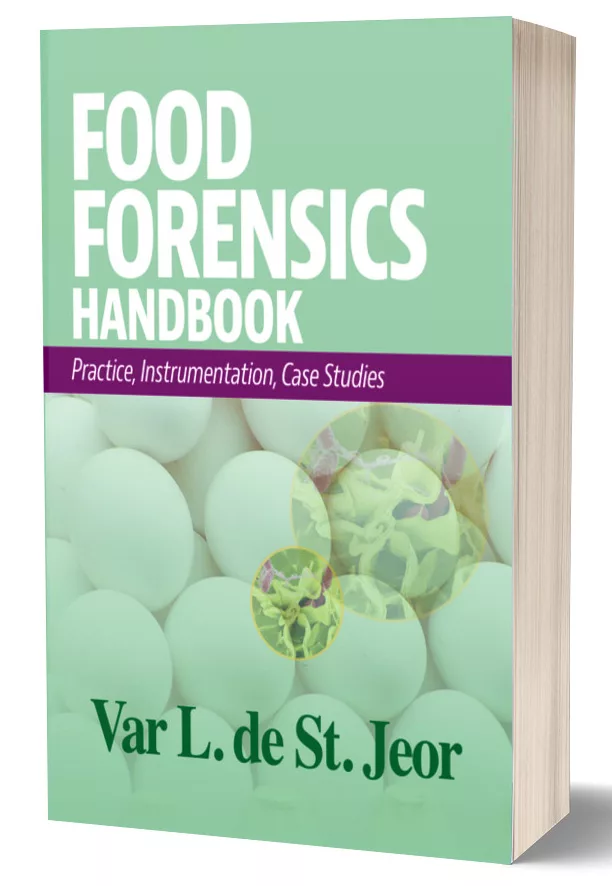New EU Food Microbiology Criteria To Impact Lab Testing
At a recent Microbiologics Inc. European Seminar held in France, Stefano Colombo, quality systems and analytical services manager–EU for Silliker Group Inc., gave a presentation on the potential impact on food testing and quality control (QC) practices in service laboratories based on the new European Union (EU) Commission Regulation (EU Reg. 2073) on food microbiology criteria.
According to Colombo, the regulation focuses on two types of microbiological criteria: the so-called safety criteria and process criteria defined for various food types: ready-to-eat foods, meat and derived products, milk and dairy products, egg products, fishery products, vegetables and fruits. Each criterion contains exact sampling plans, as well as interpretations for foodborne pathogens and hygiene indicators such as safety criteria for Listeria monocytogenes, Salmonella spp., Enterobacter sakazakii, and Escherichia coli; as well as process criteria for TVC, coagulase positive Staphylococci, Salmonella spp. on carcasses, E. coli, and Enterobacteriaceae. Food companies can employ alternative process criteria in their Hazard Analysis and Critical Control Point (HACCP) plans if they are scientifically substantiated.
The regulation is mandatory for all member states. In addition, food companies wishing to export their food products into the EU countries will have to comply with this requirement. Due to the complex technical contents of the regulation, a transitory period of approximately two years will allow food companies and public authorities the needed time to adapt to the new rule that went into effect on Jan. 1, 2006. Under the regulation, food operators must demonstrate that their existing Good Manufacturing Practices (GMP), HACCP and sampling programs are effective and satisfy the regulation.
Food Companies Take Note
Without question, the regulation’s increased focus on foodborne pathogens will strengthen the need for food companies to work with ISO 17025 accredited service laboratories to help assure the safety of their products. Accredited testing laboratories can assist companies with a number of innovations and services such as:
• Sample compositing
• Lot or batch testing versus single sample testing
• Challenge, inoculation, and survival tests
• Shelf-life studies
• Microbiological testing of the processing environment
• Improved analytical data management and trend analysis
The new microbiological criteria are associated with specific reference methods and are highly dependent on the analytical method used. Nevertheless, analytical methods other than those referenced in the regulation can be utilized if they are capable of providing equivalent results and have been validated against the reference methods listed in Annex I of the regulation; and are certified by a third party in accordance with the validation protocol of EN ISO 16140 or other internationally accepted similar protocols.
The selection of analytical methods is relevant and accredited labs must ensure that reference strains used to validate its QC and daily process controls are representative of all variations deriving from different food matrices; are constantly expressing the same biochemical and phenotypical features; allow verification of the testing process; are fully traceable to a national or an international mother culture collection; and are recognizable among food strains in order to discriminate between real sample contamination and labor-atory-originated cross-contamination.
As such, it is extremely useful to review the different practices that are commonly used for daily process controls in food testing laboratories.
Naturally contaminated or spiked food samples: These offer poor repeatability and reproducibility because they are susceptible to a host of variability factors, such as food type, competing and contaminating flora, or uneven distribution of bacteria, that can undermine results.
Pure culture strains: Originated from various sources (e.g., food samples, food processing environment) and isolated by the laboratory staff, they are still subject by variability due to their point of origin. They are not a reference material certified by any independent body and require frequent verification of their biochemical and phenotypic features to assure they do not undergo unexpected changes that will bias the process control. Further-more, their preparation and production is highly time-consuming.
Certified reference strains: These official collection cultures and derived products are the most reliable tools to assess the testing process in the lab. They are manufacturer-certified, have standardized features, are produced in easy-to-use pellet form, and can be universally used for daily process control procedures. They can belong to collection cultures, or be derived from customer strains isolated from food samples (e.g., Salmonella from dairy products; E. coli from meat products) or from the processing environment (e.g., Listeria monocytogenes from conveyor belts; spore-formers from tools and utensils). These special customer strains can be certified as reference materials once they have undergone the same preparation process as other culture collection strains and validation protocols by a recognized, certified or accredited manufacturer.
Clearly, the new EU criteria pose many questions and choices for food companies. Working with ISO 17025 accredited service laboratories, they can find solutions to meet the new regulation.
microbiologics.com
Looking for quick answers on food safety topics?
Try Ask FSM, our new smart AI search tool.
Ask FSM →








